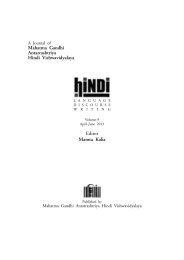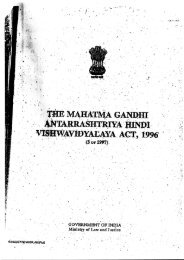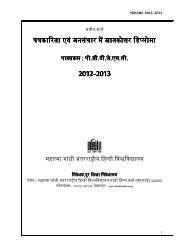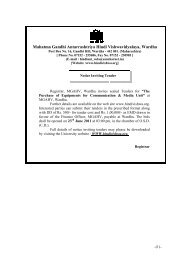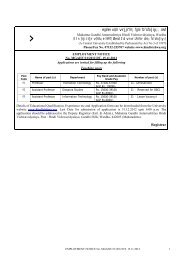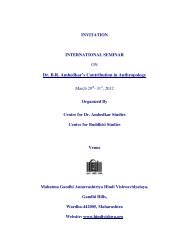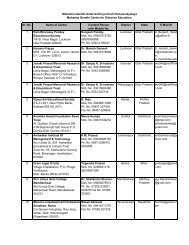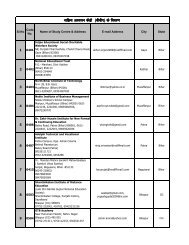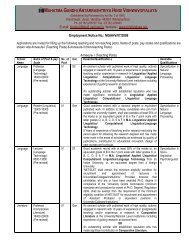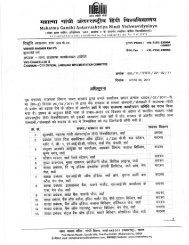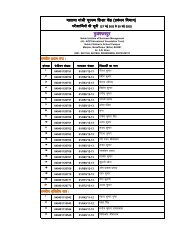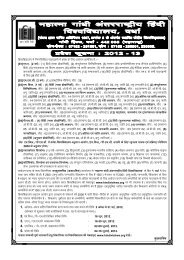Mamta Kalia
Mamta Kalia
Mamta Kalia
Create successful ePaper yourself
Turn your PDF publications into a flip-book with our unique Google optimized e-Paper software.
Translation in the global village<br />
The “global village–whole world as one<br />
globe” is being celebrated today. While<br />
the term ‘village’ itself needs to be<br />
interrogated, the other question is<br />
“whether this global village really rests<br />
on the tenets of post? to look at the<br />
world as a ‘village’ is either an absurd<br />
perception or a crafty euphemism. In<br />
what sense is the world a village? Shall<br />
we believe that we live in a quiet, tranquil<br />
verdant nook with birds chirping and<br />
fresh breeze caressing the harvest ? This!<br />
In the face of realities like nuclear bombs<br />
and global warming!<br />
But when words are butchered, when<br />
words like “peacekeeping”, “daisy cutters”<br />
and sentences like “10 Iraqis detained<br />
for interrogation” tell nothing about the<br />
brutality and humiliation (this is how<br />
words are put to shame before ‘deeds’)<br />
of which the pictures from Abu-Gharib<br />
were just a trailer, it is too much to<br />
expect that what is said is also what<br />
is meant. Thus when it is said that<br />
the world is becoming a “small world”,<br />
one needs to carefully examine what<br />
it is all about ? We are being shown<br />
continuously that the days of the nation–<br />
state are over, at least in the West,<br />
thus there are formations like the<br />
European Union and treaties like GATT<br />
or NAFTA . But as Radha Krishnan shows<br />
in his brilliant essay “Postmodernism<br />
and the rest of the world” “………despite<br />
all claims of free trade, clearly, there<br />
is a home and a not home, an inside<br />
to be protected and an outside that is<br />
really not our concern. And how do<br />
we distinguish between who is “us” and<br />
who is “them”? Of course, through the<br />
good old category of “nationality” …………”<br />
No theory can be blind enough to<br />
evade the dangerous kernel of<br />
nationalism, infact fundamentalist<br />
nationalism is the fruit of globalization<br />
that we seem to relish so much. Of course<br />
“there is no country on God’s earth that<br />
is not caught in the cross hairs of the<br />
US cruise missile and the IMF cheque–<br />
book. Argentina is the model if you<br />
want to be the posterboy of neoliberal<br />
capitalism, Iraq if you are the black<br />
sheep”.<br />
In such a world, translation, the act<br />
of carrying across-can help in creating<br />
a dialogue–on equal terms not<br />
just politico-economic corporate<br />
collaboration. There have been instances<br />
in the colonial period when translation<br />
has served as the vector of hegemonic<br />
scenario. The translator can certainly<br />
strive for a negotiation between the<br />
difference of other and signification. As<br />
Homi Bhabha writes- “Cultural<br />
Translation, is not simply appropriation<br />
or adaptation, it is a process through<br />
which cultures are required to revise<br />
their own systems and values by departing<br />
from their habitual or “inbred” rules<br />
of transformation.”<br />
After all, to translate is to dispel<br />
the comfortable illusion of unity that<br />
the primary languages give us. It is<br />
a disruption of the safir-whorfian<br />
April-June 2010 :: 153



